Unit 2 Some stories are more interesting 课件(49张,内嵌音频)
文档属性
| 名称 | Unit 2 Some stories are more interesting 课件(49张,内嵌音频) |
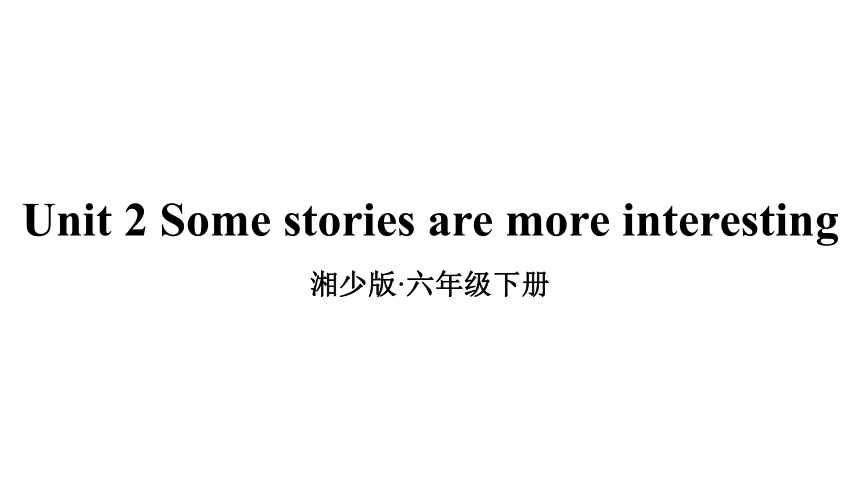
|
|
| 格式 | zip | ||
| 文件大小 | 5.4MB | ||
| 资源类型 | 教案 | ||
| 版本资源 | 湘少版 | ||
| 科目 | 英语 | ||
| 更新时间 | 2020-06-02 00:00:00 | ||
图片预览

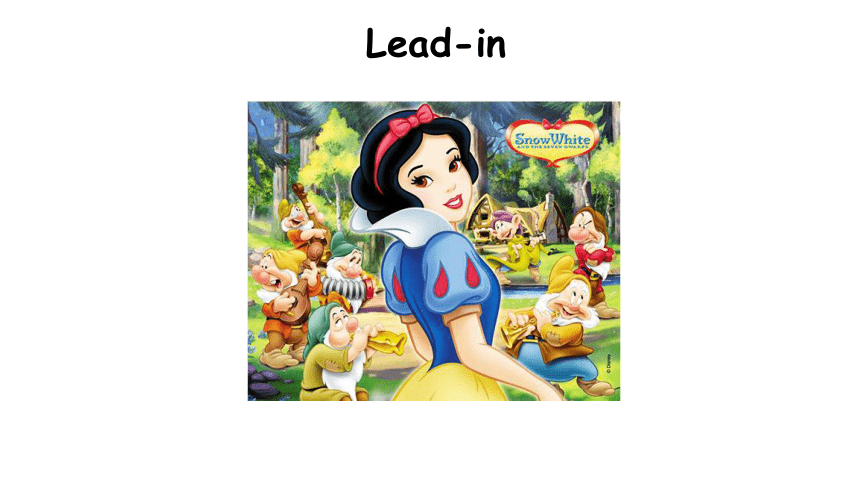
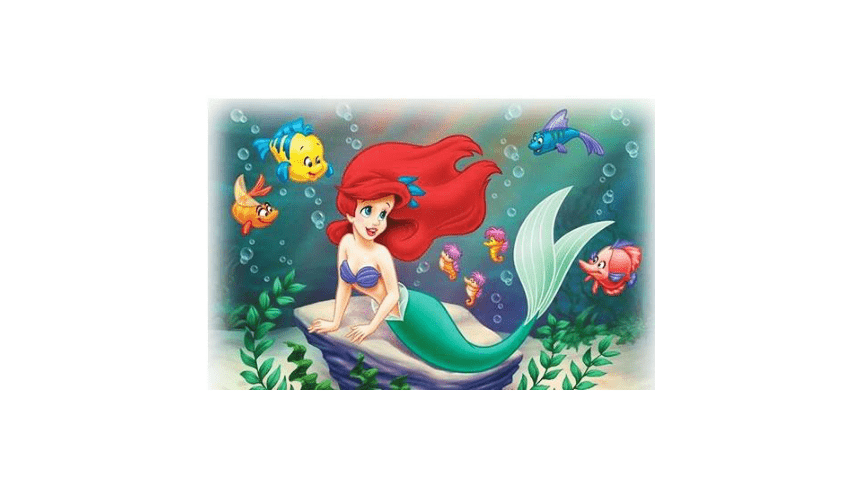
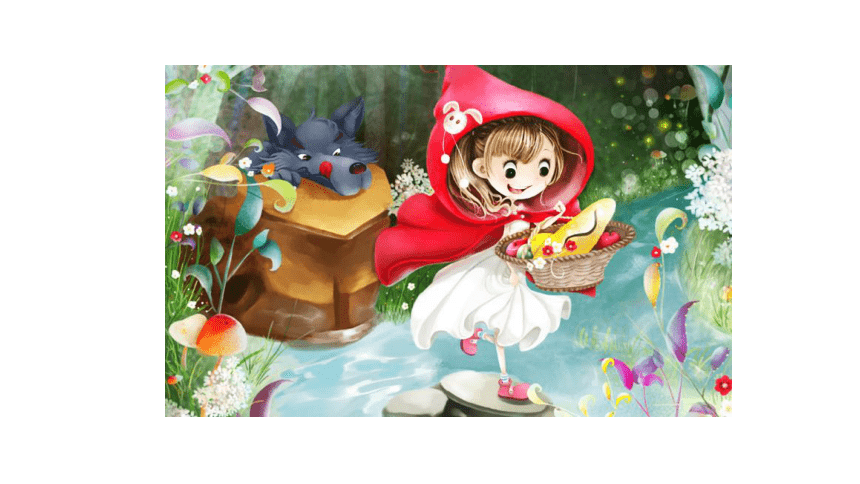
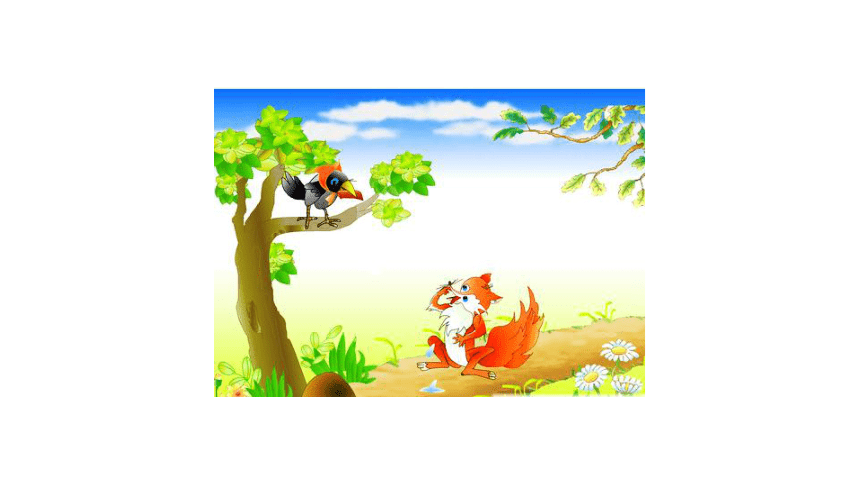
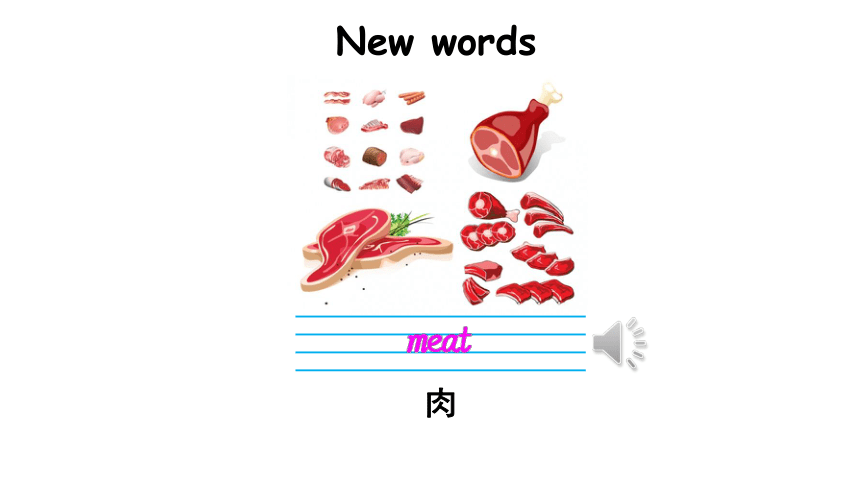
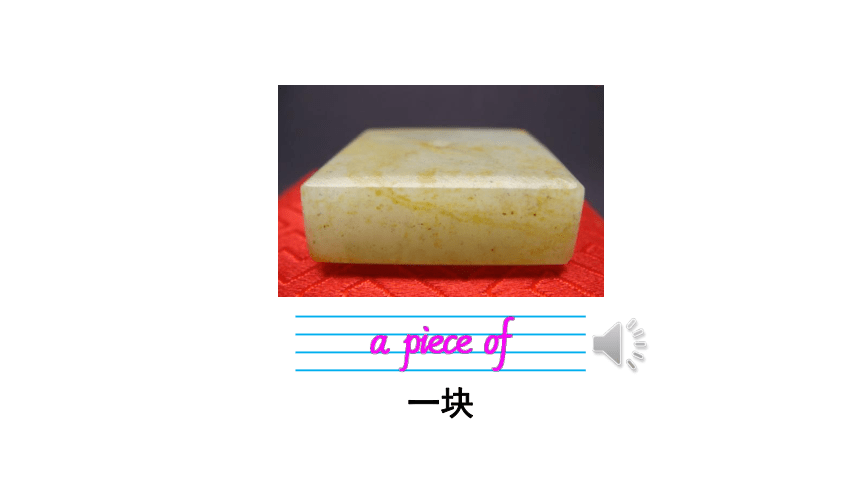
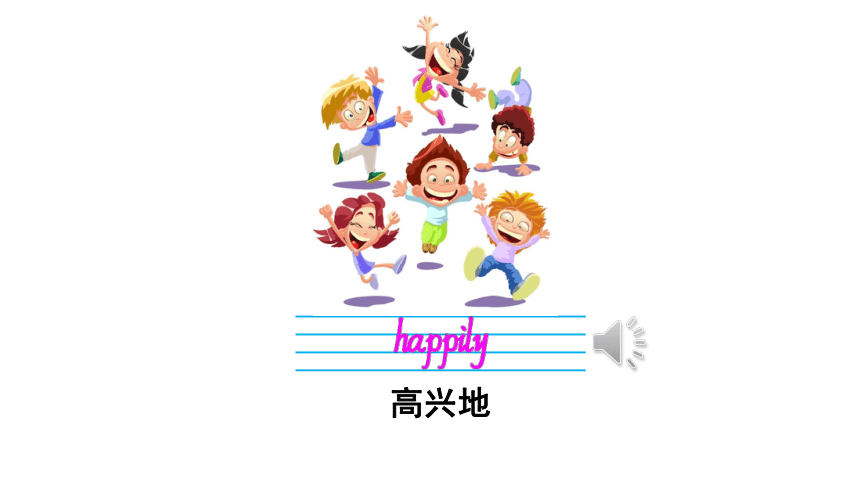

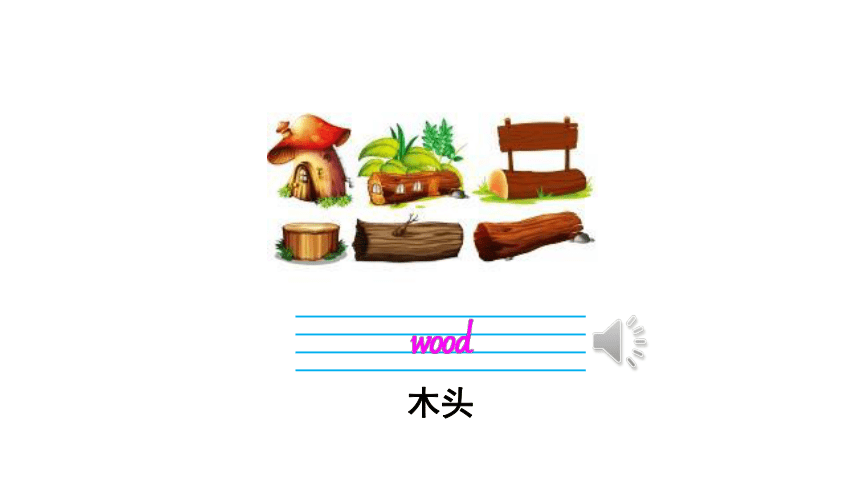
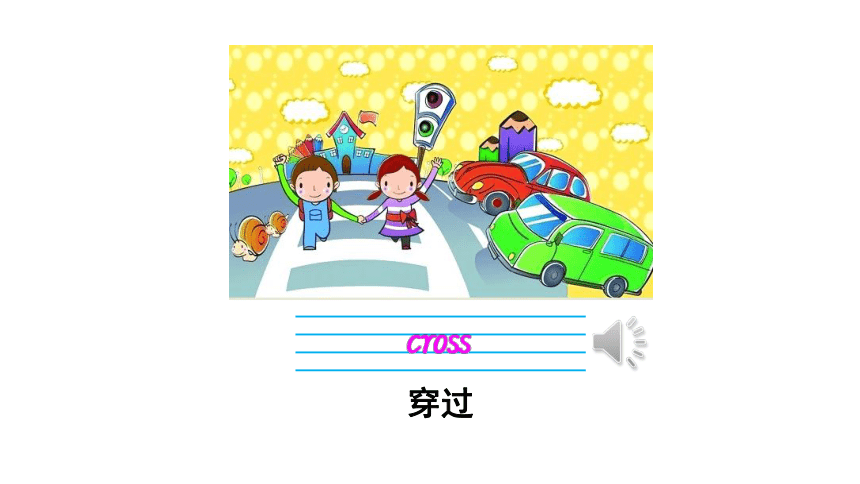
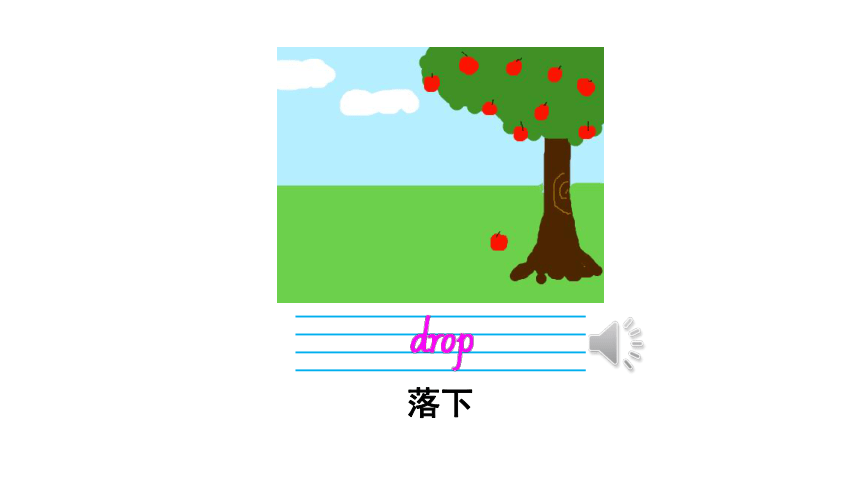
文档简介
(共49张PPT)
Unit
2
Some
stories
are
more
interesting
湘少版·六年级下册
Lead-in
肉
New
words
一块
高兴地
它的
木头
穿过
落下
失去
Let’s
listen
and
say
Peter
likes
reading
stories.
This
is
one
of
his
favorite
stories.
One
day,
a
dog
went
to
a
meat
shop.
The
man
in
the
shop
gave
a
piece
of
meat
to
the
dog.
The
dog
took
it
and
walked
home
happily.
There
was
a
small
river
near
its
home.
The
dog
walked
on
a
piece
of
wood
to
cross
the
river.
It
saw
another
dog
in
the
water.
That
dog
had
a
piece
of
meat
in
its
mouth,
too.
“That
piece
of
meat
is
better
than
mine,”
it
thought.
“I’m
going
to
get
it.”
The
dog
opened
its
mouth.
It
wanted
the
other
dog’s
meat.
Its
meat
dropped
into
the
water.
That’s
right.
The
dog
lost
its
meat.
Language
points
1.
Peter
likes
reading
stories.彼特喜欢看故事书。
like
+
doing
sth.表示“喜欢做某事”,表示经常或习惯性做某事。
例句:我妹妹喜欢唱歌。
My
sister
likes
singing.
拓展:like作动词的其他用法:
(1)
like+名词/代词,意为“喜欢”。
例句:我喜欢苹果。
I
like
apples.
(2)
like
to
do
sth表示“(偶尔或具体地)喜欢做某事”。
例句:我今天下午想去购物。
I
like
to
go
shopping
this
afternoon.
(3)
like
sb.
to
do
sth意为“喜欢某人做某事”。
例句:他喜欢我们听他讲。
He
likes
us
to
listen
to
him.
2.
This
is
one
of
his
favorite
stories.
这是他最喜欢的故事之一。
one
of+可数名词复数,表示“……之一”。
例句:他是我最好的朋友之一。
He
is
one
of
my
best
friends.
注:one
of
短语作主语,谓语动词用单数。
3.
The
man
in
the
shop
gave
a
piece
of
meat
to
the
dog.
肉店里的那个男人给了这只狗一块肉。
give
sth
to
sb.(=give
sb.
sth)意为“把某物给某人”。
give
sb.
sth在语法上叫做双宾语结构。
例句:他们给他一块手表。
They
gave
him
a
watch.
They
gave
a
watch
to
him.
4.
There
was
a
small
river
near
its
home.
它家附的有一条小河。
There
be句型表示某地存在某人或某物,常用句型结构为:There
be+名词+地点+其他。
此句型中be动词要根据后面主语的单复数而定。
例句:五年前,河边有一个旧房子。
There
was
an
old
house
by
the
river
five
years
ago.
5.
It
saw
another
dog
in
the
water.
它在水中看到了另外一条狗。
another是限定词或代词,意为“另一;又一”的意思。其后一般只接单数可数名词,不接复数名词或不可数名词。
例句:请再跟我给一个苹果。
Please
give
me
another
apple.
6.
That
piece
of
meat
is
better
than
mine.
那块肉比我的这块好。
该句包含一个表示比较的结构:A
is
better
than
B,意为“A比B好”。
例句:你的书包比我的好。
Your
schoolbag
is
better
than
mine.
Let’s
Learn
a
piece
of
meat
better
drop
一块肉
更好
掉下
Language
points
1.
a
piece
of
meat一张/件/条/块……
一般来说,不可数名词不可以用数目来计量,若要统计数量,则要借助于量词。
英语中,对不可数名词进行量化,最常见的量词就是piece,意为“张,块,条,片”等。
例如:a
piece
of
paper
一张纸
a
piece
of
bread
一片面包
a
piece
of
wood
一块木头
a
piece
of
news
一条消息
2.
better是good和well的比较级形式。
例句:我们的生活正变得越来越好。
Our
life
is
becoming
better
and
better.
拓展:
1)用作形容词。
表示“较好的,更好的”。
例句:我想要一个更好的文具盒。
I
want
a
better
pencil-case.
表示健康有所好转。
例句:我现在感觉好多了。
I
feel
better
now.
2)用作副词,表示“更好地”。
例句:
下次争取做得更好些。
Try
to
do
better
next
time.
Let’s
Practise
Let’s
Practise
I
like
swimming
more
than
running.
I
like
reading
more
than
playing
games.
I
like
singing
more
than
dancing.
Play
roles
I
like
dancing
more
than
singing.
I
like
playing
basketball
more
than
swimming.
I
like
swimming
more
than
running.
我喜欢游泳比跑步多一些。
句型“sb.
like
A
more
than
B”表示“和B相比,某人更喜欢A”。这里的A和B可以是物品,也可以是事情。
例句:我喜欢画画比阅读多一些。
I
like
painting
more
than
reading.
Language
points
拓展:more
than的其他用法:
more
than+名词,意为“(程度上)更强,更多”。
例句:他喜欢音乐多于美术。
He
likes
music
more
than
art.
more
than+数词,意为“……以上,不止……”。
例句:我们班上有40多人。
There
are
more
than
40
students
in
our
class.
more
than+形容词,意为“很,非常”。
例句:我非常高兴见到你。
I
am
more
than
glad
to
see
you.
Peter
and
Anne
like
reading.
“I
love
fairy
tales.
There
are
many
magic
stories,”
Anne
says.
“I
like
books
on
science.
I
learn
a
lot
from
these
books,”
Peter
says.
Let’s
Read
Miss
Li
says,
“Some
books
on
sciences
are
like
fairy
tales.
They
are
more
interesting
than
others.
Reading
is
good
for
us.
We
should
read
more
books.”
1.
What
kind
of
books
does
Anne
like?
Circle
your
answer.
(a)Any
interesting
book.
(b)Interesting
science
stories.
(c)Fairy
tales.
2.
What
does
Miss
Li
ask
the
children
to
do?
(a)Read
more
fairy
tales.
(b)Read
more
science
books.
(c)Read
more
books.
3.
Match
the
words
to
the
pictures.
science
book
space
story
fairy
tale
1.Reading
is
good
for
us.阅读对我们有很多好处。
Language
points
be
good
for意为“对……有好处”,使用这个短语时,be动词要随主语作相应的改变。
反义词为“be
bad
for”,意为“对……有坏处”。
例句:蔬菜对我们有好处。
Vegetables
are
good
for
us.
2.We
should
read
more
books.我们应该读更多的书。
“should+动词原形”表示“应该做某事”,此结构常用来表示提出建议。
例句:我们应该努力学习。
We
should
study
hard.
拓展:should的否定形式是在should后面加not,
缩写为shouldn’t,表示“不应该”。
形容词的比较级规则变化
一般情况
以e结尾的
以辅音+y结尾的
以重读闭音节结尾且末尾只有一个辅音字母的
多音节或部分双音节词
直接加-er
加-r
改y为i再加er
双写末尾的辅音字母再加er
在词前加more
tall-taller
高的-更高的
nice-nicer
好的-更好的
dry-drier
干的-更干的
thin-thinner瘦的-更瘦的
beautiful-more
beautiful
漂亮的-更漂亮的
情况
加法
例词
不规则变化
good/well
好的/地
better
更好的/地
old
老的
older/elder
更老的
bad/badly
坏的
worse
更坏的
little
小的
less
更小的
many/much
多的
more
更多的
far
远的
farther/further
更远的
原级
比较级
原级
比较级
注意:比较级的其他用法
1)“比较级+and+比较级”或“more
and
more+原级”
表示“越来越……”。
例句:
天气变得越来越暖和。
It
is
getting
warmer
and
warmer.
她变得越来越漂亮。
She
is
becoming
more
and
more
beautiful.
2)
“the+比较级…,the
+比较级…”,表示“越……,越……”。
例句:越早越好。
The
sooner,
the
better.
Let’s
Write
Fill
in
the
blanks.
1.
What
kind
of
books
does
Peter
like?
Peter
likes___________________________
.
2.
What
books
does
Anne
like?
Anne
likes___________________________
.
3.
What
books
does
Lingling
like?
She
likes____________________________
.
4.
Who
likes
reading
science
books
and
fairy
tales?
__________likes
reading
science
books
and
fairy
tales.
science
books
fairy
tales
interesting
storybooks
Mingming
Let’s
Have
Fun
Pair
work.
Dino
is
going
to
the
lake.
Help
him
to
find
a
safe
way
to
the
lake.
1.Which
is
more
dangerous,
Path
B
or
Path
C?
________________________________________
2.Which
is
more
interesting
to
take,
Path
A
or
Path
B?
________________________________________
3.Which
path
is
longer,
Path
A
or
Path
B?
________________________________________
4.Which
path
will
Dino
take
to
go
to
the
lake?
________________________________________
Path
C
Path
B
Path
B
Path
A
Unit
2
Some
stories
are
more
interesting
湘少版·六年级下册
Lead-in
肉
New
words
一块
高兴地
它的
木头
穿过
落下
失去
Let’s
listen
and
say
Peter
likes
reading
stories.
This
is
one
of
his
favorite
stories.
One
day,
a
dog
went
to
a
meat
shop.
The
man
in
the
shop
gave
a
piece
of
meat
to
the
dog.
The
dog
took
it
and
walked
home
happily.
There
was
a
small
river
near
its
home.
The
dog
walked
on
a
piece
of
wood
to
cross
the
river.
It
saw
another
dog
in
the
water.
That
dog
had
a
piece
of
meat
in
its
mouth,
too.
“That
piece
of
meat
is
better
than
mine,”
it
thought.
“I’m
going
to
get
it.”
The
dog
opened
its
mouth.
It
wanted
the
other
dog’s
meat.
Its
meat
dropped
into
the
water.
That’s
right.
The
dog
lost
its
meat.
Language
points
1.
Peter
likes
reading
stories.彼特喜欢看故事书。
like
+
doing
sth.表示“喜欢做某事”,表示经常或习惯性做某事。
例句:我妹妹喜欢唱歌。
My
sister
likes
singing.
拓展:like作动词的其他用法:
(1)
like+名词/代词,意为“喜欢”。
例句:我喜欢苹果。
I
like
apples.
(2)
like
to
do
sth表示“(偶尔或具体地)喜欢做某事”。
例句:我今天下午想去购物。
I
like
to
go
shopping
this
afternoon.
(3)
like
sb.
to
do
sth意为“喜欢某人做某事”。
例句:他喜欢我们听他讲。
He
likes
us
to
listen
to
him.
2.
This
is
one
of
his
favorite
stories.
这是他最喜欢的故事之一。
one
of+可数名词复数,表示“……之一”。
例句:他是我最好的朋友之一。
He
is
one
of
my
best
friends.
注:one
of
短语作主语,谓语动词用单数。
3.
The
man
in
the
shop
gave
a
piece
of
meat
to
the
dog.
肉店里的那个男人给了这只狗一块肉。
give
sth
to
sb.(=give
sb.
sth)意为“把某物给某人”。
give
sb.
sth在语法上叫做双宾语结构。
例句:他们给他一块手表。
They
gave
him
a
watch.
They
gave
a
watch
to
him.
4.
There
was
a
small
river
near
its
home.
它家附的有一条小河。
There
be句型表示某地存在某人或某物,常用句型结构为:There
be+名词+地点+其他。
此句型中be动词要根据后面主语的单复数而定。
例句:五年前,河边有一个旧房子。
There
was
an
old
house
by
the
river
five
years
ago.
5.
It
saw
another
dog
in
the
water.
它在水中看到了另外一条狗。
another是限定词或代词,意为“另一;又一”的意思。其后一般只接单数可数名词,不接复数名词或不可数名词。
例句:请再跟我给一个苹果。
Please
give
me
another
apple.
6.
That
piece
of
meat
is
better
than
mine.
那块肉比我的这块好。
该句包含一个表示比较的结构:A
is
better
than
B,意为“A比B好”。
例句:你的书包比我的好。
Your
schoolbag
is
better
than
mine.
Let’s
Learn
a
piece
of
meat
better
drop
一块肉
更好
掉下
Language
points
1.
a
piece
of
meat一张/件/条/块……
一般来说,不可数名词不可以用数目来计量,若要统计数量,则要借助于量词。
英语中,对不可数名词进行量化,最常见的量词就是piece,意为“张,块,条,片”等。
例如:a
piece
of
paper
一张纸
a
piece
of
bread
一片面包
a
piece
of
wood
一块木头
a
piece
of
news
一条消息
2.
better是good和well的比较级形式。
例句:我们的生活正变得越来越好。
Our
life
is
becoming
better
and
better.
拓展:
1)用作形容词。
表示“较好的,更好的”。
例句:我想要一个更好的文具盒。
I
want
a
better
pencil-case.
表示健康有所好转。
例句:我现在感觉好多了。
I
feel
better
now.
2)用作副词,表示“更好地”。
例句:
下次争取做得更好些。
Try
to
do
better
next
time.
Let’s
Practise
Let’s
Practise
I
like
swimming
more
than
running.
I
like
reading
more
than
playing
games.
I
like
singing
more
than
dancing.
Play
roles
I
like
dancing
more
than
singing.
I
like
playing
basketball
more
than
swimming.
I
like
swimming
more
than
running.
我喜欢游泳比跑步多一些。
句型“sb.
like
A
more
than
B”表示“和B相比,某人更喜欢A”。这里的A和B可以是物品,也可以是事情。
例句:我喜欢画画比阅读多一些。
I
like
painting
more
than
reading.
Language
points
拓展:more
than的其他用法:
more
than+名词,意为“(程度上)更强,更多”。
例句:他喜欢音乐多于美术。
He
likes
music
more
than
art.
more
than+数词,意为“……以上,不止……”。
例句:我们班上有40多人。
There
are
more
than
40
students
in
our
class.
more
than+形容词,意为“很,非常”。
例句:我非常高兴见到你。
I
am
more
than
glad
to
see
you.
Peter
and
Anne
like
reading.
“I
love
fairy
tales.
There
are
many
magic
stories,”
Anne
says.
“I
like
books
on
science.
I
learn
a
lot
from
these
books,”
Peter
says.
Let’s
Read
Miss
Li
says,
“Some
books
on
sciences
are
like
fairy
tales.
They
are
more
interesting
than
others.
Reading
is
good
for
us.
We
should
read
more
books.”
1.
What
kind
of
books
does
Anne
like?
Circle
your
answer.
(a)Any
interesting
book.
(b)Interesting
science
stories.
(c)Fairy
tales.
2.
What
does
Miss
Li
ask
the
children
to
do?
(a)Read
more
fairy
tales.
(b)Read
more
science
books.
(c)Read
more
books.
3.
Match
the
words
to
the
pictures.
science
book
space
story
fairy
tale
1.Reading
is
good
for
us.阅读对我们有很多好处。
Language
points
be
good
for意为“对……有好处”,使用这个短语时,be动词要随主语作相应的改变。
反义词为“be
bad
for”,意为“对……有坏处”。
例句:蔬菜对我们有好处。
Vegetables
are
good
for
us.
2.We
should
read
more
books.我们应该读更多的书。
“should+动词原形”表示“应该做某事”,此结构常用来表示提出建议。
例句:我们应该努力学习。
We
should
study
hard.
拓展:should的否定形式是在should后面加not,
缩写为shouldn’t,表示“不应该”。
形容词的比较级规则变化
一般情况
以e结尾的
以辅音+y结尾的
以重读闭音节结尾且末尾只有一个辅音字母的
多音节或部分双音节词
直接加-er
加-r
改y为i再加er
双写末尾的辅音字母再加er
在词前加more
tall-taller
高的-更高的
nice-nicer
好的-更好的
dry-drier
干的-更干的
thin-thinner瘦的-更瘦的
beautiful-more
beautiful
漂亮的-更漂亮的
情况
加法
例词
不规则变化
good/well
好的/地
better
更好的/地
old
老的
older/elder
更老的
bad/badly
坏的
worse
更坏的
little
小的
less
更小的
many/much
多的
more
更多的
far
远的
farther/further
更远的
原级
比较级
原级
比较级
注意:比较级的其他用法
1)“比较级+and+比较级”或“more
and
more+原级”
表示“越来越……”。
例句:
天气变得越来越暖和。
It
is
getting
warmer
and
warmer.
她变得越来越漂亮。
She
is
becoming
more
and
more
beautiful.
2)
“the+比较级…,the
+比较级…”,表示“越……,越……”。
例句:越早越好。
The
sooner,
the
better.
Let’s
Write
Fill
in
the
blanks.
1.
What
kind
of
books
does
Peter
like?
Peter
likes___________________________
.
2.
What
books
does
Anne
like?
Anne
likes___________________________
.
3.
What
books
does
Lingling
like?
She
likes____________________________
.
4.
Who
likes
reading
science
books
and
fairy
tales?
__________likes
reading
science
books
and
fairy
tales.
science
books
fairy
tales
interesting
storybooks
Mingming
Let’s
Have
Fun
Pair
work.
Dino
is
going
to
the
lake.
Help
him
to
find
a
safe
way
to
the
lake.
1.Which
is
more
dangerous,
Path
B
or
Path
C?
________________________________________
2.Which
is
more
interesting
to
take,
Path
A
or
Path
B?
________________________________________
3.Which
path
is
longer,
Path
A
or
Path
B?
________________________________________
4.Which
path
will
Dino
take
to
go
to
the
lake?
________________________________________
Path
C
Path
B
Path
B
Path
A
同课章节目录
- Unit 1 A family outing
- Unit 2 Some stories are more interesting
- Unit 3 We should learn to take care of ourselves
- Let's Know More
- Assessment Ⅰ
- Unit 4 Planting trees is good for us
- Unit 5 Our earth looks like this in space.
- Unit 6 Anne wanted to dance
- Let's Know More
- Assessment Ⅱ
- Unit 7 I'm not afraid!
- Unit 8 International Children's Day
- Unit 9 Look at these beautiful places in the world
- Let's Know More
- Assessment Ⅲ
